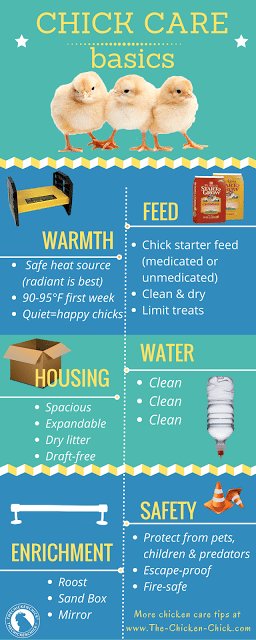
Caring for Baby Chicks: A Comprehensive Guide
Introduction
Baby chicks are adorable and delicate creatures that require specialized care to thrive. Whether you’re a seasoned poultry enthusiast or a first-time chick owner, understanding their unique needs is crucial for their well-being. This comprehensive guide will provide you with all the essential information you need to care for baby chicks from day one.
Housing
Brooder:
- A brooder is a warm, enclosed space where chicks can live for the first few weeks of life.
- Choose a brooder that is large enough to accommodate the number of chicks you have.
- Line the brooder with a soft material, such as pine shavings or straw.
- Provide a heat source, such as a heat lamp or brooder plate, to maintain a temperature of 95-100°F (35-38°C) during the first week. Gradually reduce the temperature by 5°F (3°C) each week until it reaches room temperature.
Ventilation:
- Proper ventilation is essential to prevent ammonia buildup and respiratory problems.
- Ensure there are holes or vents in the brooder to allow fresh air to circulate.
- Avoid overcrowding the brooder, as this can lead to poor air quality.
Feeding
Starter Feed:
- Feed baby chicks a commercial starter feed specifically formulated for their nutritional needs.
- Starter feed is high in protein and contains essential vitamins and minerals.
- Provide fresh feed in a shallow dish or feeder that is easily accessible to the chicks.
Water:
- Provide fresh, clean water at all times.
- Use a shallow waterer or a nipple waterer that prevents chicks from getting wet.
- Change the water daily to prevent contamination.
Supplements:
- Consider providing chicks with additional supplements, such as electrolytes or probiotics, to support their health and development.
- Follow the manufacturer’s instructions for dosage and frequency.
Health Care
Vaccination:
- Vaccinate chicks against common poultry diseases, such as Marek’s disease and Newcastle disease.
- Consult with a veterinarian to determine the appropriate vaccination schedule.
Parasite Control:
- Regularly check chicks for parasites, such as mites or lice.
- Treat infestations promptly with appropriate medications.
Common Health Problems:
- Pasty butt: A condition where feces stick to the chick’s vent, blocking it. Gently remove the feces and apply petroleum jelly to the vent.
- Leg weakness: A condition where chicks have difficulty walking or standing. Provide supportive care and consult with a veterinarian.
- Coccidiosis: A parasitic infection that can cause diarrhea and dehydration. Treat with anticoccidial medication.
Handling
- Handle chicks gently and support their bodies.
- Avoid holding them upside down or by their legs.
- Wash your hands thoroughly before and after handling chicks to prevent the spread of disease.
Socialization
- Chicks are social animals and should be raised in groups.
- Provide them with toys and objects to interact with.
- Spend time with chicks to socialize them and reduce stress.
Transitioning to the Outdoors
- Once chicks are fully feathered and old enough (typically around 6-8 weeks), they can be transitioned to the outdoors.
- Gradually introduce them to the outside environment by allowing them to spend short periods in a secure enclosure.
- Provide them with shelter, food, and water in the enclosure.
Conclusion
Caring for baby chicks is a rewarding experience that requires patience, attention to detail, and a commitment to their well-being. By following the guidelines outlined in this guide, you can provide your chicks with the optimal environment and care they need to thrive. Remember to consult with a veterinarian if you have any concerns about their health or development. With proper care, your baby chicks will grow into healthy and happy chickens that will bring you years of joy.
